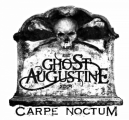Walpurgisnacht

What is Walpurgisnacht?
Walpurgisnacht, also known as Walpurgis Night, Saint Walpurga’s Eve, or simply Night of Walpurgis, is an annual celebration observed from April 30th through May 1st. While it originated in central Europe, it has garnered global recognition in recent years. Here’s the backstory of this fascinating occasion:
The Saint: Walpurga
The event is named after Saint Walpurga, an 8th-century missionary dispatched from England to spread Christianity among the pagans of central Europe. Born into the family of Richard the Pilgrim, Walpurga devoted years to her calling. At age 11, she assumed the role of abbess at Wimborne Abbey in Dorset, where she received her religious education.
Walpurga’s legacy is profound. She not only battled prevalent diseases of her era but also campaigned against pagan customs like magic, sorcery, and witchcraft, guided by her Christian convictions. Following her passing, Pope Adrian II canonized her as a Catholic saint on May 1st, 870.
Origins of Walpurgisnacht
Walpurga’s veneration grew after her death, prompting celebrations to coincide with May 1st, although her official feast day is February 25th. Bonfires were kindled in her honor during this period. Curiously, the alignment with May Day, a pre-Christian festival celebrating seasonal transitions, appears coincidental.
For Christians, this timing offered an opportunity to integrate a pagan observance into their faith, thus melding Christian reverence with ancient pagan customs. Consequently, Walpurgis Night evolved into one of Europe’s most cherished celebrations, blending elements of both traditions.
Celebrating Walpurgisnacht
Should you wish to partake in Walpurgisnacht festivities, here are some customs to consider:
- Bonfires: Light a bonfire to pay homage to Saint Walpurga, a tradition rooted in ancient pagan rituals aimed at warding off malevolent spirits.
- Herb Gathering: Gather herbs associated with Walpurga, such as woodruff, believed to possess protective qualities and utilized in various ceremonies.
- Revelry: Similar to Halloween, Walpurgisnacht is a night of merry-making. Dress up, dance, and immerse yourself in the festivities.
- Mountain Pilgrimage: Explore mountain peaks linked to Walpurga and witchcraft, believed to be sites of ancient pagan justice and sacrifice, to infuse your celebration with an aura of mystery.
Whether you’re drawn to the Christian narrative or the pagan origins of Walpurgisnacht, this holiday offers a captivating fusion of history, magic, and tradition. 🌟🌿🔥
